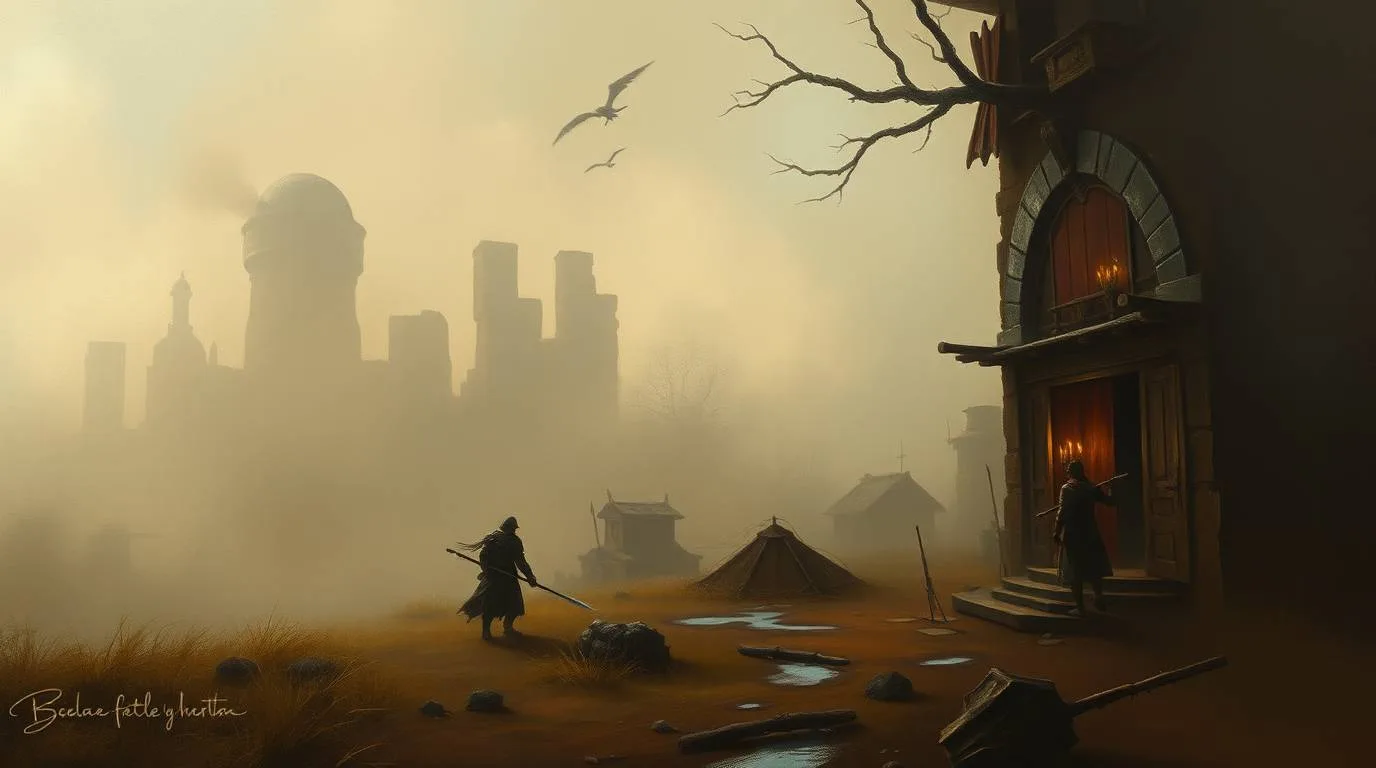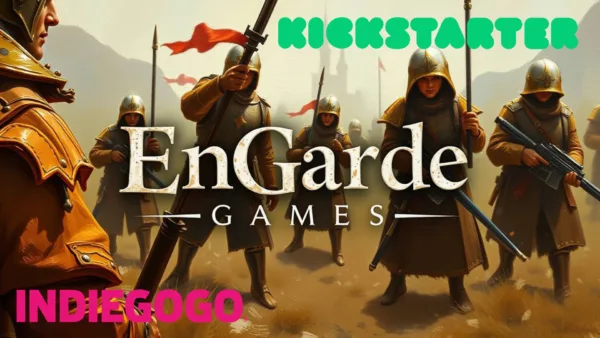The tabletop role-playing game (TTRPG) industry thrives on creativity, community, and innovation. Central to this ecosystem is the Open Gaming License (OGL) – a pioneering legal framework developed by Wizards of the Coast in 2000 that allows independent creators to use and modify certain game mechanics freely. By providing access to a wealth of rules and systems – most notably the D20 System used in Dungeons & Dragons (D&D) 3rd Edition – the OGL revolutionized how games are developed, shared, and expanded.
But while the OGL may have been created for fantasy RPGs, its philosophy of openness and creative empowerment echoes in games across genres and mediums. A fascinating example is EnGarde, a game that blends fantasy pirates, swashbuckling action, social intrigue, and player-driven storytelling – both as a classic tabletop RPG, CCG and a modern AI video game. Although EnGarde is not released under the OGL, its gameplay and development journey mirror many of the values that the OGL promotes.
What is the Open Gaming License?
The OGL is a license that grants permission to use certain copyrighted material—called Open Game Content (OGC) – without seeking specific permission or paying royalties. This content typically includes rules and mechanics but excludes things like character names, artwork, or narrative settings, which are labeled as Product Identity and remain protected.
The OGL gave birth to a vibrant third-party publishing industry. Companies like Paizo Publishing, Kobold Press, and Green Ronin built careers on open-content supplements and standalone games. Most notably, Paizo’s Pathfinder was created using the OGL after the community reacted poorly to D&D 4th Edition. The OGL thus not only opened creative doors but also fueled market competition and innovation.
EnGarde: Death before Dischonor
– de la Rosa
First published in 2024 by EnGarde Games Ltd and EnGarde Games, MB, EnGarde was a unique blend of fencing duels, 15 – 18th-centuries court life, and structured social encounters. Unlike typical RPGs focused on dungeon crawling or fantasy combat, EnGarde emphasized honor, reputation, romance, and courtly intrigue.
Gameplay was driven by tables and charts, which allowed for structured yet imaginative storytelling. Players assumed the roles of musketeers navigating the political and social environment of a fictional European court. The emphasis was on role-play over stat crunching, and the game quickly gained a cult following, particularly among play-by-mail (PBM) communities.
Over the years, the game saw several editions, each refining its mechanics while preserving the original charm. Its system though not under an open license – was modular and easy to adapt, making it popular among hobbyists who appreciated flexible, narrative-focused design.
EnGarde Open World – Future A Modern AI Video Game
In 2023/24, the spirit of EnGarde was reborn through a completely different medium – a role-playing game, an action-adventure game called EnGarde, developed by EnGarde Games. The role-playing game is directly related to tabletop role-playing and card games, and it is based on similar themes: elegant duels, the glamour and extravagant entertainment that prevailed in those times, and fantasy elements along with magic, psionics and the chaos that rages in the north.
Players step into the shoes of an Old World, a witty, acrobatic heroine who uses her rapier and tongue to defeat corrupt officials in a stylized, sun-drenched city. The gameplay emphasizes environmental combat, counter-mechanics (taunting opponents), and a cinematic style that allows players to kick barrels, jump off balconies, and fight enemies with pride.
The game began as part of a 20-year history of the game and prototyped in 2018 with its own rules that have evolved over the past 20 years from Warriors and Mages to D&D, Warhammer, and so on, earning raves from testers and other fans of the game for its new approach to close combat. This feedback phase was crucial – community testers helped shape everything from the timing of parried blows to the interaction with the environment.
By its full release in August 2025, EnGarde And in both paper and pixels, that legacy continues to flourish.
Testing and Feedback in the EnGarde Process
EnGarde’s modern game is an example of responsive development, echoing the way OGL-based TTRPGs thrive on community feedback. A 2018 prototype served as a testing ground for mechanics, animations, and overall feel. Players were quick to praise the game’s charm, but noted areas for improvement, such as mass combat control and combat responsiveness.
Rather than rely on early success, EnGarde Games used this feedback to refine and expand the final product. Patches released after the game’s release have addressed numerous issues and introduced new content, such as new enemy types, combat modifiers, and quality-of-life features like accessibility toggles.
This iterative approach reflects the type of agile development seen in OGL-https://engarde.lt/mogulir/2021/04/poodj7atts841.jpged tabletop games, where designers regularly revisit and expand on content based on player feedback, campaign playtesting, and market trends.
The Connection Between OGL and EnGarde
Although EnGarde was not developed under the OGL, it embodies many of the principles of open game design. Its mechanics are transparent and adaptable, making it easy to build at home or adapt to a new context. The gameplay encourages creative problem-solving, character development, and narrative immersion – goals that many OGL-based games share.
EnGarde’s transition from tabletop to digital also highlights the evolution of RPG design across platforms. Just as the OGL has broken down barriers for tabletop game developers, tools like the Unreal Engine and digital distribution platforms now allow small teams to inspire new stories in interactive formats.
Conclusion: Open Worlds, Open Minds
The Open Gaming License changed the landscape of tabletop gaming by making systems more accessible, shareable, and adaptable. It nurtured a culture of creativity that echoes in projects far beyond traditional RPGs.
EnGarde – both as a historical tabletop game and a modern digital action-adventure – illustrates how open design principles can transcend formats. Whether you’re calculating dueling modifiers on a character sheet or kicking barrels into guards in a sunlit courtyard, the heart of open gaming remains the same: freedom to create, to adapt, and to share.



